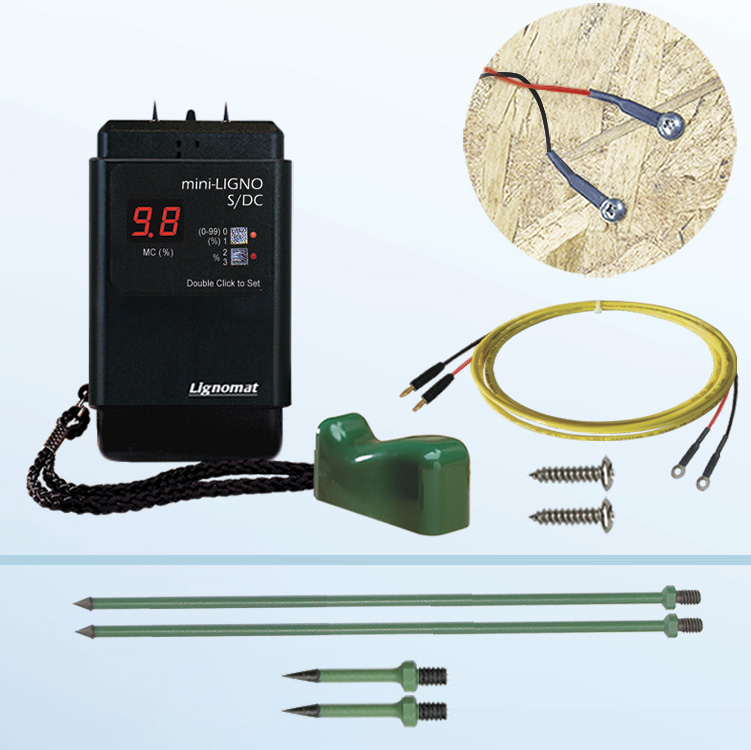Moisture Meter Buying Guide: What to Look for in High-Quality Instruments
Moisture Meter Buying Guide: What to Look for in High-Quality Instruments
Blog Article
The Ultimate Overview to Moisture Meters: A Comprehensive Summary and How They Can Save You Cash
Moisture meters offer as vital tools in detecting and keeping track of moisture web content in products, assisting in protecting against costly damages and ensuring the quality of products. Comprehending the nuances of various types of dampness meters, their applications, and the potential cost-saving benefits they supply can be a game-changer for organizations and experts alike.
Kinds Of Moisture Meters
Numerous types of dampness meters are available for different applications in numerous industries. One common type is the pin-type wetness meter, which measures the electrical resistance in between two pins inserted into a material. This type is suitable for wood, drywall, and other building materials. Pinless wetness meters, on the various other hand, usage electro-magnetic sensor plates to scan a larger location without causing damage to the material's surface. Moisture Meter. These meters are optimal for rapidly assessing wetness levels in big areas such as wall surfaces and floors.

Additionally, there are additionally specialty wetness meters designed for particular products like hay, soil, or grain. These meters supply exact wetness readings tailored to the one-of-a-kind properties of the material being examined. Infrared dampness meters gauge the thermal residential properties of a product to determine its wetness material non-invasively, making them valuable for applications where pin or pinless meters might not be ideal. Comprehending the various types of wetness meters offered can help industries choose one of the most suitable device for their certain dampness dimension requirements.

Advantages of Making Use Of Wetness Meters
Wetness meters use important advantages in accurately assessing and keeping an eye on wetness levels in varied materials and environments (Moisture Meter). Among the primary benefits of making use of moisture meters is the avoidance of possible damages caused by excess moisture. By discovering and resolving high moisture degrees early on, moisture meters help to avoid mold and mildew development, rot, and architectural damages in buildings, saving both money and time on repair work. In addition, dampness meters help in making certain the high quality of materials during building or manufacturing processes. By properly measuring dampness web content, these devices aid keep the honesty of timber, drywall, concrete, and other materials, decreasing the danger of problems or failures.
Additionally, making use of dampness meters can lead to enhanced power efficiency. In farming setups, moisture meters play a critical role in optimizing plant returns by enabling farmers to keep an eye on soil moisture degrees and make educated irrigation choices.
Just How to Choose the Right Wetness Meter
When picking a wetness meter, it's crucial to make certain that the meter is ideal for the certain product you will be testing. Various materials have differing electrical residential properties that can affect wetness readings, so picking a meter designed for your material is essential for exact outcomes. By carefully examining these elements, you can choose a wetness meter that meets your needs and provides accurate dampness measurements for your jobs.
Correct Strategies for Wetness Meter Usage

Expense Cost Savings With Moisture Meter Applications
Just how can the calculated usage of moisture meters lead to considerable price financial savings across numerous sectors? In the farming sector, dampness meters help in figuring out the ideal time for harvesting crops, protecting against excess or over-drying dampness that can affect the final item's top quality.
In a similar way, in building and construction, moisture meters assist stop costly problems by discovering dampness degrees in structure materials, such as wood or concrete, which can bring about architectural issues otherwise attended to immediately. By identifying problem locations early, contractors can take rehabilitative steps to avoid comprehensive repair work or substitutes, eventually conserving time and cash.
Furthermore, in the food handling industry, moisture meters are vital for keeping an eye on product top quality and making certain conformity with safety guidelines. By properly determining dampness material in food items, suppliers can stop spoilage, preserve quality, and decrease waste, resulting in significant price savings. Overall, the tactical application of wetness meters is a beneficial see this here financial investment that can bring about significant cost decreases and enhanced efficiency throughout various sectors.
Verdict
In verdict, wetness meters are useful devices for spotting and determining moisture levels in various products. By using the right dampness meter and following appropriate strategies, users can properly prevent expensive problems created by excess wetness.
Wetness meters offer as essential tools in detecting and keeping track of moisture web content in materials, assisting in preventing costly problems and guaranteeing the top quality of items. Infrared wetness meters measure the thermal buildings of a material to identify its dampness web content non-invasively, making them useful for applications where pin or pinless meters might not be appropriate.Dampness meters provide invaluable advantages in accurately evaluating and keeping track of wetness levels in diverse products read this and settings. In farming setups, dampness meters play a vital function in optimizing crop returns by making it possible for farmers to keep an eye on dirt wetness levels and make notified irrigation choices.In verdict, dampness meters are valuable tools for gauging and discovering dampness levels in different products.
Report this page